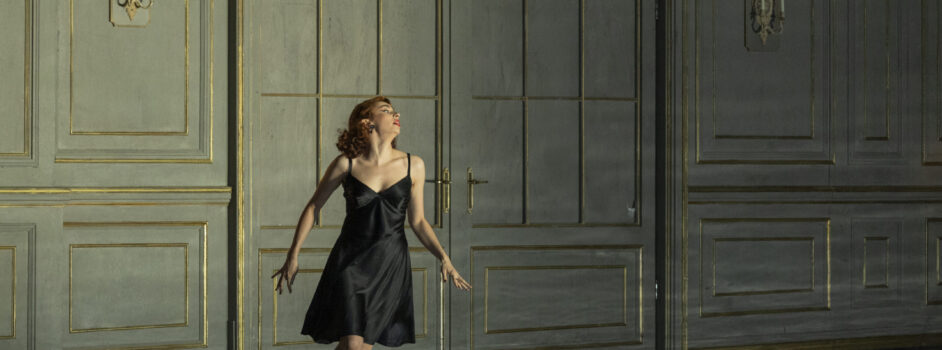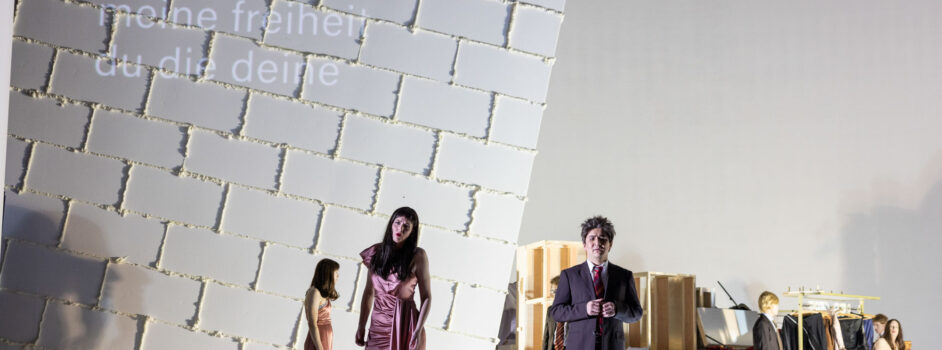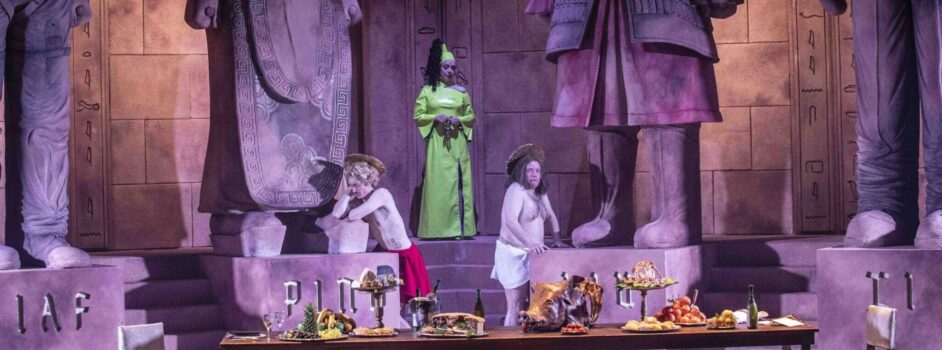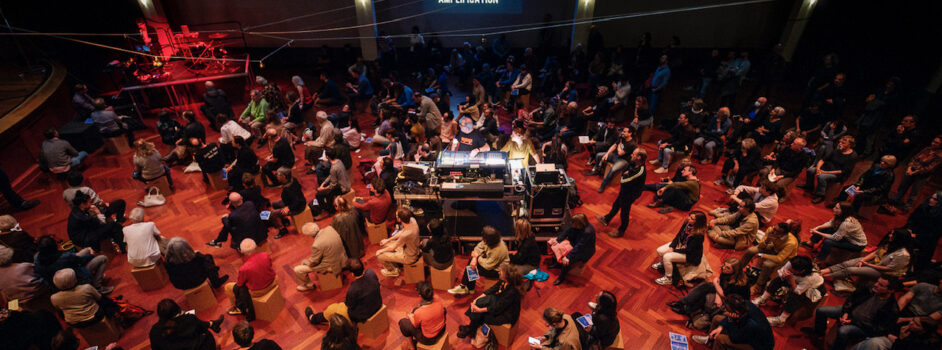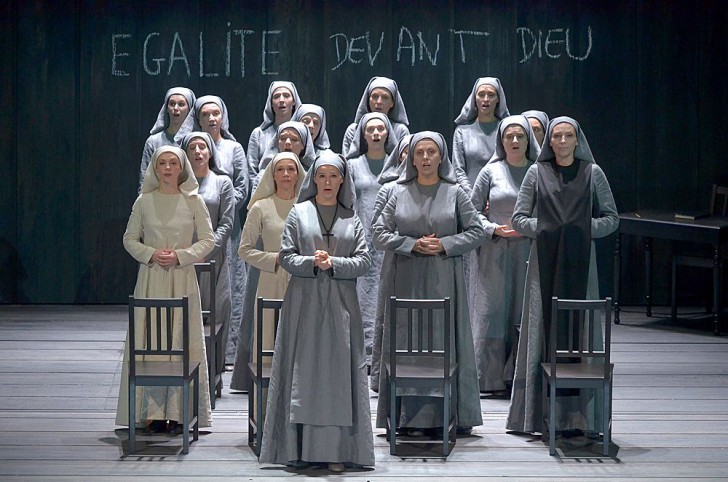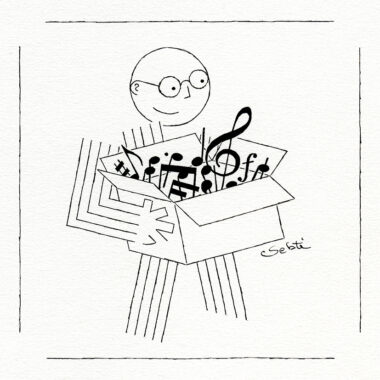Plus de détails
Paris. Théâtre des Champs-Elysées. 10-XII-2013. Francis Poulenc (1899-1963) : Dialogues des Carmélites, opéra en trois actes sur un livret du compositeur. Mise en scène : Olivier Py ; décors et costumes : Pierre-André Weitz ; Lumières : Bertrand Killy. Avec : Patricia Petibon, Blanche de la Force ; Véronique Gens, Madame Lidoine ; Sophie Koch, Mère Marie de l’Incarnation ; Rosalind Plowright, Madame de Croissy ; Anne-Catherine Gillet, Sœur Constance de Saint Denis ; Topi Lehtipuu, le Chevalier de La Force ; Philippe Rouillon, le Marquis de La Force ; François Piolino, l’Aumônier ; Jérémy Duffau, Premier Commissaire ; Yuri Kissin, Second Commissaire ; Mathieu Lécroart, Thierry / le Médecin / le Geôlier. Chœur du Théâtre des Champs-Elysées (chef de chœur : Alexandre Piquion), Philharmonia Orchestra, direction : Jérémie Rhorer
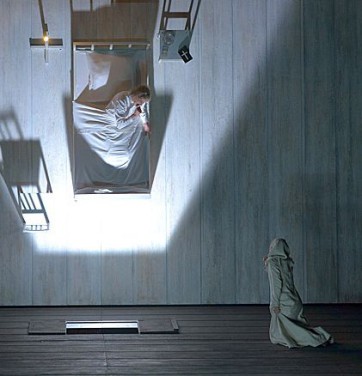 This is the fourth important production of Dialogues of the Carmelites premiered this season in France, after the ones in Toulon, Bordeaux/Nantes and Lyon. This work, commissioned exactly sixty years ago by the director of the Ricordi book house and premiered in Italian at La Scala, Milan in 1957, can be considered as Poulenc's magnum opus and has never been that much put forward in France before. The Théâtre des Champs-Elysées's version's attractive casting was a likely brilliant show. And indeed, it turned out to be a success, albeit somewhat disappointing.
This is the fourth important production of Dialogues of the Carmelites premiered this season in France, after the ones in Toulon, Bordeaux/Nantes and Lyon. This work, commissioned exactly sixty years ago by the director of the Ricordi book house and premiered in Italian at La Scala, Milan in 1957, can be considered as Poulenc's magnum opus and has never been that much put forward in France before. The Théâtre des Champs-Elysées's version's attractive casting was a likely brilliant show. And indeed, it turned out to be a success, albeit somewhat disappointing.
The Carmelites had everything needed to fascinate director Olivier Py: a rhetorical, yet mystical theme, a dialectical libretto, dealing with freedom and determinism, and a cinematic structure. And indeed, at times, Py's visual imagination, obviously impassioned, fire on all cylinders. The scene of the death of the prioress is seen from far above: the bed has been nailed on the wall of the set, and the prioress, standing on it, looks like she is lying down. She is surrounded by the shades of her furniture, which is too basic to not seem disturbing. How breathtaking! The jail, with its Tron-like icy interlacing rays of light and neons, and the covent, spiked with old thorny trees, both also possess a strong poetical power. However, some other “artistic tricks” appear more wanton, such as: the last meal of the carmelites, which mimics the Last Supper; a recurring plywood crib; tautological silhouettes animating the Marquis's tale ; and, especially, the useless and ineffective entrance, via the hall, of the commissioners. Py's scenography is fluid and, as always, shows a great spatial virtuosity. It makes good use of the theater's new technical possibilities since its renovation, as well as of the talent of his usual set designer and electrician). It successively shows beautiful images, striking climates, clever devices, but makes no clear guiding line – no viewpoint on the opera itself nor any overall design, nor even any true understanding of the characters. That is mainly because, once again, Py's staging lacks a decent directing of the actors.
On the other hand, Jérémie Rhorer's baton definitely takes sides: for violence, for harshness, for the hot-headed nature of this music that has been too often drawn towards prettiness or purity in the past. Rhorer enhances the hues of the Philharmonia Orchestra, which has seldom been heard that rough (and that attractive : what beautiful clarinets!), sculpting the rhythms of a score that, from then on, evokes more Janáček than Desussy. At times, the young conductor's hand is somewhat heavy, and the almost Spanish tints in the last interlude are surprising. But Rhorer also knows how to create a balance between theatricality (emphasizing the text) and symphonism. This full-color interpretation needed to be echoed – and the impressive voice troupe did so.
Anne-Catherine Gillet, who was a last-minute substitute for Sandrine Piau (who was indisposed) as Sister Constance, deserves a special word of praise. Admittedly, Gillet, who had just sung the part of Blanche de la Force in Nantes, is familiar with the work and the part – but still, what solar clearness in her projection and diction, and most notably, what irresistible presence she gave to the “little sister”, who is more complex than what “interpretative tradition” has suggested over the years! Véronique Gens's level as the sub-prioress was evidently as high, and partly for the same reasons: her dense, sensual and even voice was perfect for this golden part, even if she possesses a natural grandeur that does not entirely fit Madame Lidoine. Facing her, Sophie Koch was more maternal than imperious as Mother Marie, but she still did not give an inch.
Patricia Petibon has long performed charmingly as Constance: tonight she was Blanche, the part whose specificities she possesses now – a spiced up low register, an increased straightforwardness in projection and elocution. Seeming to bear in mind her recent part as Lulu, Petibon impersonated a sharp character, almost expressionist in her bursts, with the high notes being (deliberately) straight and some sourness in her voice that she did not try to erase. Thus, Blanche lost her “sympathetic” quality, but acquired some strangeness and virulence. Likewise, the two tenors, both with a very smooth voice, did not try to hide their fragility: we could have pictured the chaplain less ingratiating than François Piolino was, and Chevalier de la Force more manly than Topi Lehtipuu was. However, in the always irresistible scene of the parlor, the Finnish tenor proved to be poignant. The Marquis was excellent and the commissioners somewhat disappointing. Only the prioress remains, which is always a “problematic” part. Rosalind Plowright is at the twilight of her career, and she failed to dominate the part. Her vocal registers sounded definitely dissimilar (with a creaking low register) , her French remained approximate, and she especially seemed unsettled by the sprechgesang that the score demands, either over- or under-doing it.
That's a pity, because this was the only catch in the production, which was acclaimed by the audience. For those who did not manage to see this very popular show, it was co-produced by Brussel's La Monnaie and will probably by rerun there soon.
Crédit photographique : © Vincent Pontet / Wikispectacles
Plus de détails
Paris. Théâtre des Champs-Elysées. 10-XII-2013. Francis Poulenc (1899-1963) : Dialogues des Carmélites, opéra en trois actes sur un livret du compositeur. Mise en scène : Olivier Py ; décors et costumes : Pierre-André Weitz ; Lumières : Bertrand Killy. Avec : Patricia Petibon, Blanche de la Force ; Véronique Gens, Madame Lidoine ; Sophie Koch, Mère Marie de l’Incarnation ; Rosalind Plowright, Madame de Croissy ; Anne-Catherine Gillet, Sœur Constance de Saint Denis ; Topi Lehtipuu, le Chevalier de La Force ; Philippe Rouillon, le Marquis de La Force ; François Piolino, l’Aumônier ; Jérémy Duffau, Premier Commissaire ; Yuri Kissin, Second Commissaire ; Mathieu Lécroart, Thierry / le Médecin / le Geôlier. Chœur du Théâtre des Champs-Elysées (chef de chœur : Alexandre Piquion), Philharmonia Orchestra, direction : Jérémie Rhorer

